Case Digest
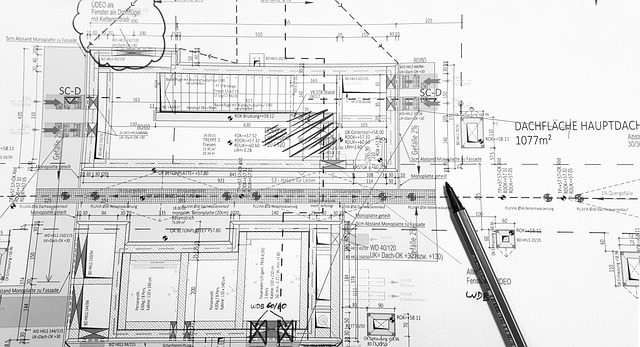
R(on the application of DeVere)
Bailii, 2023
Permission to appeal was refused. The Judge found that the Claimants had acquired title by adverse possession under section 15 of the Limitation Act 1980 but that their title was defeated by the operation of sections 11 and 29 of the LRA 2002 because it had not been registered. He recorded the Claimants’ argument that the 2002 Act does not operate to resurrect a title acquired by adverse possession but considered that they had no real prospect of success because the 2002 Act has a specific mechanism to deal with the position where (as in this case) no exact boundary has been determined.

Healey v Fraine & Ors [2023] EWCA Civ 549
Case Law, 2023
Case Summary:
The appeal primarily turned on the exercise of discretion in relation to amendments to a pleading on the facts of this particular case. This issue, although significant to the parties, raises no particular question of general importance and would not by itself have merited a second appeal to this Court. But the appeal also incidentally raises more fundamental questions about the nature of adverse possession in the context of registered land which are of more general significance.
Legal Context:
A claim for adverse possession of registered land could only be advanced in accordance with the LRA 2002; the County Court lacked jurisdiction to determine such a claim which needs to be made to the Land Registry.
Sections of LRA 2002:
Further, s98(1) only applies where Sched 6 para 5(4) LRA2002 applies, and that is concerned with the particular case where a neighbouring owner has been in adverse possession of registered land in the belief that it belonged to him. s98(3) only applies where Sch 6 para 6LRA applies and that is concerned with an adverse possessor who remains in possession for a further 2 years after his first application has been rejected.
Defence of Adverse Possession:
The fundamental basis on which a person in adverse possession can defeat the claim of the paper owner to possession is the same as underlies any other limitation defence, namely that the claimant had a right to bring an action but has failed to do so for the statutory period. The consequences are more far-reaching than for most other limitation defences, as the effect of the 12 years elapsing without action being brought is not only to give the person in adverse possession a defence but to extinguish the paper owner’s title altogether. This has been the case since the Real Property Limitation Act 1833 and is now found in s. 17 LA 1980. But the foundation of the defence, as with other defences of limitation, is that the paper owner had a right of action but did not bring proceedings within the statutory period. That therefore presupposes that the paper owner could have sued the defendant for possession.
Practical Effect:
The practical effect is that in most cases there is no limitation period applicable at all to a claim for possession of registered land. Unless the person in possession can bring himself within one of the narrow exceptions provided in sch 6, it does not matter how long he has been in possession, or how much he may have reasonably believed himself to have some right to the land. That can be seen to be a choice by the Law Commission, accepted by Parliament, to depart from the primacy given in unregistered conveyancing to long enjoyed possession and instead to accord priority to the security of a registered title.

Henwood v Copeland & Ors [2023] EWHC 598 (Ch)
Bailii, 2023
Case Summary:
(1) No right of action to recover land shall be treated as accruing unless the land is in the possession of some person in whose favour the period of limitation can run (referred to below in this paragraph as “adverse possession”); and where under the preceding provisions of this Schedule any such right of action is treated as accruing on a certain date and no person is in adverse possession on that date, the right of action shall not be treated as accruing unless and until adverse possession is taken of the land.
Legal Context:
(2) Where a right of action to recover land has accrued and after its accrual, before the right is barred, the land ceases to be in adverse possession, the right of action shall no longer be treated as having accrued and no fresh right of action shall be treated as accruing unless and until the land is again taken into adverse possession.

Cyntra Properties Ltd v Gillborn & Anor [2023] EWHC 759 (Ch)
Case Law, 2023
Case Summary:
This case confirms the doctrine of encroachment, that a tenant adversely occupying his landlord’s land does not achieve extinguishment of the paper owner’s title, but instead acquires a leasehold interest and that a tenant must adversely possess the land for twelve years for this to occur.

Malik & Ors v Malik [2023] EWHC 59 (Ch)
Bailii, 2023
Case Summary:
Adverse possession was considered as an abuse of process argument where at one time, one of the parties claimed ownership of the property.

Patwardhan & Anor v Ivygate Developments Ltd [2022] EWHC 3367 (Ch)
Case Law, 2022
Case Summary:
The case involved a claim for adverse possession of roof space and whether it was part of the demise.

Calverley Village Day Nursery Ltd v Lynch & Anor [2022] EWHC 1855 (Ch)
Bailii, 2022
Case Summary:
The main issue on this appeal was whether there was sufficient evidence of possession of land and intention to possess it by 13 October 1991 to entitle the trial judge to conclude that, by virtue of 12 years’ adverse possession, title to that land was held on trust for the predecessors in title of the First Respondent (Mrs Lynch) by 13 October 2003. The land in question was used for parking and storage. The nature, extent, and intention of the possessor were issues to be considered in adverse possession and how it may be distinguished from an easement.
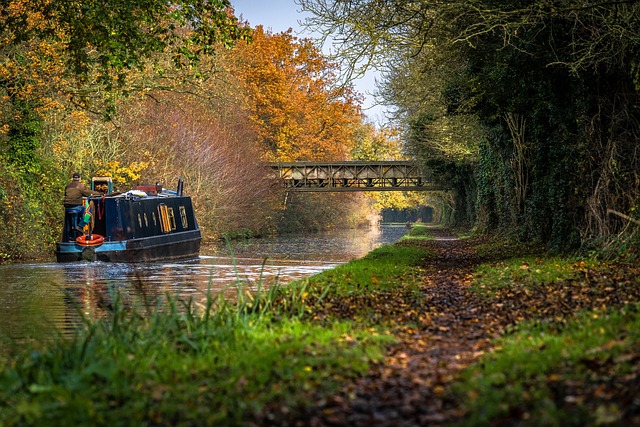
The Manchester Ship Canal Company Ltd v United Utilities Water Ltd [2022] EWCA Civ 852
Case Law, 2022
Case Summary:
The court considered the position as to whether a successor in title to A is also liable for trespass even if he does nothing. Suppose for example that A dies and leaves his house to C, or that A sells it to C, is C liable for trespass? The answer here is not quite so obvious, as C has neither built the house nor done anything at all; he has merely acquired an infringing structure. Again however it seems to me that C would be liable. Otherwise B would simply have to put up with a continuing trespass on his land, which does not seem right, and might even lead to C in due course acquiring either a title to adverse possession (in the case of the house being built over the boundary) or an easement of eavesdrop by prescription (in the case of the roof discharging water). It was considered that B could obtain an order requiring C to remove the building (or modify it so as to prevent it discharging water onto B’s land), and that this could only be so if C were guilty of a trespass by leaving it there.

Wynne-Finch & Ors v Natural Resources Body for Wales [2021] EWCA Civ 1473
Case Law, 2021
Case Summary:
The case related to the ownership and exploitation of Welsh mudstone. It is well established that where a paper title is extinguished by adverse possession of the surface, the adverse possession extends to minerals beneath the surface (unless, of course, they have been reserved by an earlier conveyance which is independently binding on the adverse possessor): see the Judgment at [138] and Seddon v Smith (1877) 36 LT 168.

Thorpe v Frank & Anor [2019] EWCA Civ 150
Case Law, 2019
Case Summary:
The dispute arose from Mrs Thorpe’s claim to have acquired, by adverse possession, part of the land included in the title to another property. Land which had been used as access had been incorporated into her house. This was still an act of possession even if it did not inconvenience the paper title owner. Issues relating to what amounted to acts of adverse possession were raised; putting up a fence, parking, paving, walling off, and planting.

Rashid v Nasrullah [2018] EWCA Civ 2685
Case Law, 2018
Case Summary:
The registered proprietor of land is deprived of his title in May 1989 in consequence of a series of forged documents, including a forged transfer. The new registered proprietor transfers the land to his son by way of gift later in that year. The son, who is complicit in the fraud, enters into occupation. Over 20 years later the original registered proprietor applies for rectification of the register. Can his claim be defeated by adverse possession on the part of the current registered proprietor? Both the First-tier Tribunal and the Upper Tribunal said “No”. The current registered proprietor appeals.
At the time of the forged transfer, the legal regime in force was the Land Registration Act 1925. Under that regime, it was possible to acquire title to registered land by adverse possession if the registered proprietor had been dispossessed for 12 years. In that event, the dispossessed proprietor was deemed to hold the title on trust for the squatter. The court emphasized that the legal landscape regarding adverse possession changed significantly with the coming into force of the Land Registration Act 2002, but this case concerns events that occurred before the change.
The court found that the son’s claim was valid not because of his father’s fraud or complicity in the fraud, but because of the fact that he possessed the property for the requisite 12 years without the true owner’s consent, before the significant changes to the law of adverse possession in 2002. Although Section 32 of the Limitation Act 1980 can extend time in cases of undiscovered fraud, the court found that the true owner knew of his grievance by 1990, meaning it would not affect the outcome of this case.

Food Convertors Ltd & Anor v Newell & Anor [2018] EWHC 926 (Ch)
Bailii, 2018
Case Summary:
Here, the Recorder rejected the case put forward by Mr Rothschild, acting in person for himself and Food Convertors Ltd (of which he is a director), that (1) there was an enforceable boundary agreement in his favour regarding the disputed land and/or (2) he and later Food Convertors Ltd had acquired title to the disputed land by adverse possession. The Judge found that Mr Rothschild had not established that he had gone into and retained possession of the disputed land for the entire 12-year period.

Sartipy v Tigris Industries Inc [2017] EWHC 3596 (Ch)
Bailii, 2017
Case Summary:
This application arose out of litigation which had been ongoing for nine years, starting in 2008. Mrs Sartipy and her son, Mr Langroody (also known as Mr Ghassemian), brought a claim against the defendant, attempting to obtain adverse possession of the defendant’s property at 26-30 Earls Court Road, London. The claim was rejected by the Land Registry deputy adjudicator, who strongly found that the documents supporting the claim were forged by Mr Langroody, a serious accusation that was addressed by Lewison LJ in his judgment of 23rd February 2016 ([2016] EWCA Civ 269). Lewison stated at [2]:
“The extraordinary story in this case begins with the bogus claim to acquire title by adverse possession of land registered in the name of Tigris Industries Inc, supported by forged and fabricated documents. One of the claimants was Mrs Hamila Ghassemian and another was her son, Mr Sharooz Langroody. The deputy adjudicator found that Mr Langroody had ‘created an elaborate and false paper trail to support his case which … simply does not stand up to scrutiny.'”
Legal Context:
The case involved a claim to obtain title by adverse possession, which was ultimately rejected due to the use of forged documents. This highlights the importance of presenting valid and verifiable evidence in such claims, particularly when adverse possession is in question.

NRAM Ltd v Evans & Ors [2017] EWCA Civ 1013
Bailii, 2017
Case Summary:
The case raised issues concerning the legislative scheme set out in Schedule 4 to the Land Registration Act 2002 (“the LRA 2002”) and the power it confers on the court to make alterations to the register for the purpose of correcting a mistake or bringing the register up to date.
Legal Context:
This case revolves around the Land Registration Act 2002, particularly focusing on Schedule 4 and the court’s authority to amend the land register when a mistake is discovered or to ensure the register reflects the true state of affairs.

Gore v Naheed & Anor [2017] EWCA Civ 369
Bailii, 2017
Case Summary:
The dispute between the parties centred on the use of a driveway which connected the Claimant’s property to the road.

Harrison v Brading [2016] EWHC 3267 (Ch)
Bailii, 2016
Case Summary:
The court determined the boundary between two neighbouring properties in circumstances where prior conveyancing plans were at variance with the placement of existing walls and fences. Neither party was found to have acquired any land from the other through adverse possession or a boundary agreement.

McGuinness v Preece [2016] EWHC 1518 (Ch)
Bailii, 2016
Case Summary:
A plot of land that was part of a yard used for a family business had not been purchased by one of the sons, but had been acquired by adverse possession by the father. The father had not given a clear assurance that the yard would be divided between his four children, so a claim under proprietary estoppel and constructive trust principles by one of the sons to a quarter share failed.

Khan v Khan [2015] EWHC 2625 (Ch)
Bailii, 2015
Case Summary:
The son had been declared bankrupt in February 2013, by which time all his claimed causes of action had accrued. They vested in the trustee in bankruptcy and, because they had no realistic prospect of success, there was no realistic prospect of his adopting them. The adverse possession claim could not be made out because the son had not applied to register his title as required by the Land Registration Act 2002, and the transitional provisions did not apply. The claim for a lien would also fail. The son had no legal or equitable entitlement to the monies said to be secured by the claimed lien and, even if he had, it was doubtful whether a lien existed at all. First, for a lien to arise, the lienee’s possession had to have been lawful at its inception, which was not the case if the son had taken adverse possession.

R(on the application of Best) v Chief Land Registrar [2015] EWCA Civ 177
Case Summary:
The appellant registrar appealed against a decision ([2014] EWHC 1370 (Admin)) that the respondent squatter could rely on his adverse possession of a residential property to claim title to the property even though his occupation was a criminal offence under the Legal Aid, Sentencing and Punishment of Offenders Act 2012 s.144.
Where a squatter claimed title to a residential property based on adverse possession, the fact that part of his occupation constituted a criminal offence under the Legal Aid, Sentencing and Punishment of Offenders Act 2012 s.144 did not prevent his conduct from qualifying as relevant adverse possession for the purposes of the Land Registration Act 2002 Sch.6. The criminalisation of squatting did not mean that granting title to a squatter in such circumstances amounted to him benefiting from his criminal conduct.
The appeal was dismissed.
It was an established principle that the law of illegality did not give the court a discretion to take a claimant’s illegal actions into account when deciding the extent to which such illegality impacted the relief sought by the claimant. Rather, the court had to identify in the specific context a particular rule which appropriately reflected the relevant underlying policy.
Balancing the public policy considerations in the 2002 Act with those in the 2012 Act, it was clear that Parliament had not intended s.144 of the latter to impact Sch.6 of the former. Section 144 was designed to provide deterrence and practical assistance for homeowners in removing squatters from their properties; it was not to re-balance the rights of property owners and adverse possessors regarding their respective entitlements to be treated as title holders to property. That was so in respect of either registered or unregistered land. Accordingly, criminally unlawful activity falling within s.144 could occur without it preventing a successful claim to acquire title by virtue of adverse possession. There was no overriding public policy concern associated with s.144 which ought to be taken to affect the usual balance of interests between landowner and adverse possessor.

Heaney v Kirkby [2015] UKUT 178
Case Summary:
A similar case where the land, a roadside verge, could not reasonably be fenced. This did not matter: fencing is only one way of exercising physical control; it need not be the only way: [40]. In that case the requisite control was demonstrated by a number of activities on the verge such as the creation of hardstanding for parking, the laying of topsoil, the planting of a flower border, looking after the lawn and shrubs. [16, 21 & 47] All in all, these amounted to use and possession as, amongst other things, a garden. [49] What is more, the claim succeeded notwithstanding that the verge had been used by others occasionally for parking, manoeuvring of cars and as a passing place. [48] It was held that this use by others, which had been argued to render the squatter’s enjoyment use in common [18], did not prevent Mrs Kirkby from exercising a degree of control that was appropriate in all the circumstances. [49]

Bradley v Heslin [2014] EWHC 3267 (Ch)
Case Summary:
There was evidence that the claimants maintained the pillars and painted the gates, first in 1992 and then again in 1998 and in 2004. The defendants denied that the claimants had any right to close the gates at all, contending that they were purely ornamental and that they had never been closed on any regular basis and were never closed until July 2012. They further claimed that both of the pillars that flanked the driveway belonged to No 40A, as did the gate itself. The claimant sought a declaration that they had a right to maintain the gates and a right to open and close those gates at all times and for all purposes connected with the enjoyment of No 40.

R(on the application of Best) v Chief Land Registrar [2014] EWHC 137 (Admin)
The chief land registrar was wrong to refuse a squatter’s application for adverse possession under the Land Registration Act 2002 Sch.6 on the basis that his occupation of the property had constituted a criminal offence under the Legal Aid, Sentencing and Punishment of Offenders Act 2012 s.144. The mere fact that adverse possession was based on criminal trespass did not preclude a successful claim to adverse possession under Sch.6.
The claimant squatter (B) applied for judicial review of a decision of the defendant chief land registrar (L) to refuse him permission to make an application under the Land Registration Act 2002 Sch.6 to register him as the proprietor of a property on the basis that he had been in adverse possession of it for over 10 years.
B had entered the property, which was empty and abandoned, in around 1997 and had carried out work to it over many years before properly moving in January 2012. In September 2012 the Legal Aid, Sentencing and Punishment of Offenders Act 2012 s.144 came into force which criminalised trespass by “living in” a residential building. In November 2012 B applied to register himself as the proprietor.
It was held that it was not correct that where the act of possession was an offence, no adverse possession could arise. It was doubtful that Parliament would have enacted s.144 unless it had assumed that adverse possession would not be affected by whether trespassory acts of possession were criminal or merely unlawful torts. It had to have thought that criminalising trespass would have no effect on the operation of adverse possession for registered or unregistered land. The purpose of s.144 was to help property owners who needed immediate police action, not to disrupt the 2002 Act with random effects on the operation of adverse possession. Parliament had to be taken to have thought that the public policy advantages of adverse possession at common law meant that the mere fact that the adverse possession was based on criminal trespass did not preclude a successful claim to adverse possession. Accordingly L’s decision was founded on an error of law as to the effect of s.144.

Sartipy v Tigris Industries Inc [2017] EWHC 3596 (Ch)
Proceedings in the name of Mrs Sartipy. One such set of proceedings was a claim by Mrs Sartipy to register a title acquired by adverse possession to some land in Earls Court Road. Those proceedings were dismissed. The Adjudicator found that Mr Langroody had laid an “elaborate and false paper trail to support the case” and that many of the documents relied on by Mr Langroody (some of which had been produced in the course of the hearing itself) were either forgeries or were documents which had been altered to suit his case.

Parshall v Hackney [2013] EWCA Civ 240
The Appellant appealed a decision and rectification and indemnification were the only remedies for mistakes resulting from concurrent registration of land in two different titles; nobody with registered title to land could, at the same time, establish possessory title, because their occupation of the land would not be unlawful. Time did not, therefore, begin to run for the purposes of adverse possession until rectification had taken place. The Limitation Act 1980 did not apply to the statutory right of rectification.

Clapham & Ors v Narga [2023] EWHC 3337 (Ch)
Bailii, 2023
The Applicant had been found to have no registered title or entitlement to register title to the canal bank or any part of wharf, to have no unregistered interest in the canal bank or wharf, never to have been lawfully in possession of a mooring at the wharf, and never to have acquired adverse possession rights there.

Couper v Albion Properties Ltd [2013] EWHC 2993 (Ch)
A collection of boats and pontoons in the River Thames at Battersea constituted a private and a public nuisance. The boat owners had not acquired title to any part of the river wall or river bed by adverse possession, and their claim to “ancient mooring rights” did not have any legal basis. Their entire installation constituted “works” within the meaning of the Port of London Act 1968 which were unlicensed and which the Port of London Authority was entitled to remove.
C’s claim to adverse possession of the riverbed and anchors failed because they did not have the necessary intention to possess since they believed at the relevant time that they had P’s consent. In any event, it was not possible as a matter of law to establish adverse possession of the riverbed, because it was vested in P by statute for the purposes of, among other things, regulating the public right of navigation of the river.

Mitchell v Watkinson [2013] EWHC 2266 (Ch)
A cricket club had had a tenancy without a lease in writing, meaning that the landlord’s right of action for possession accrued on the determination of the tenancy in accordance with the Limitation Act 1980 Sch.1 Pt I para.5. Although the club had entered into a written tenancy agreement regarding the land, that agreement had not been with the freeholder; the fact that the freeholder had subsequently accepted rent payments, thus granting a lease by implication from conduct on the same terms as the written agreement, did not suffice to make the written agreement the relevant lease in writing.

Turner v Chief Land Registrar [2013] EWHC 1382 (Ch)
A claimant squatter in adverse possession was not entitled to lodge a caution against first registration of a piece of unregistered land under the Land Registration Act 2002 s.15.
It was fundamental to English land law that title, at least to unregistered land, was not absolute but relative. If a squatter remained in adverse possession for 12 years he acquired good title against the paper owner under the Limitation Act 1980 s.15 and s.17, but would also be protected before the expiry of the 12-year period by his act of possession. The rationale of the statutory exclusion of the owner of a freehold from lodging a caution against first registration was that a caution was not intended to provide a substitute for first registration.
The policy of the 2002 Act was that the owner of the freehold should register his estate under s.3(2) and not seek instead to lodge a caution against first registration. As T could not be registered until 12 years had elapsed from his going into possession and his acquisition of a good title under the 1980 Act, the rationale for the exclusion was not applicable in his case. However, although the 2002 Act could have allowed someone in T’s position to apply to lodge a caution, it had not done so. To qualify under s.15(1)(b) the interest had to affect a “qualifying estate”. The only qualifying estate other than T’s own freehold was that of the paper owner, but T’s overriding interest did not affect the paper owner and did not therefore satisfy s.15(1)(b).

Smart v Lambeth LBC [2013] EWCA Civ 1375
A claim for adverse possession had been rightly dismissed on the basis that the claimant knew that he was among the classes of people intended by a local authority scheme to be permitted to occupy the premises.
It was undisputed that possession with the owner’s consent was not adverse possession. Permission could be either express or implied, and it did not have to be contractually binding.

Swan Housing Association Ltd v Gill [2012] EWHC 3129 (QB)
A county court judge had erred when concluding that it was for the court to determine whether a sub-tenant had acquired a title to a piece of land by way of adverse possession; that function was to be discharged by the Land Registry.
Furthermore, the judge had erred when concluding that the sub-tenant was not permitted to make an application to the Land Registry.

Greenmanor Limited v Pilford [2012] EWCA Civ 756
A case of adverse possession of land within a compound in which the Court of Appeal stated in terms that it is not necessary to establish that the land was completely enclosed preventing anyone from accessing the land: all that is required is to show acts that are sufficient to amount to physical custody and control, bearing in mind the nature of the land. [21 & 27]

Pilford & Anor v Greenmanor Ltd [2012] EWCA Civ 756
The Court of Appeal, Civil Division, upheld a finding that the claimants had established adverse possession over part of the defendant’s land, but that the claimants had committed an actionable wrong in using the defendant’s land to gain vehicular access directly to their own land.
Adverse possession needs to establish:
- Factual possession of the land
- Intention to exclude the world at large, including owner
- Discontinuance of possession

Baxter v Mannion [2011] EWCA Civ 120
It was implicit in the wording of the Land Registration Act 2002 Sch.6 para.1 that a person who was not in adverse possession of land was not entitled to apply to be registered as its owner. If registration occurred in those circumstances it would be susceptible to correction as a mistake within the meaning of Sch.4 para.1 and para.5.
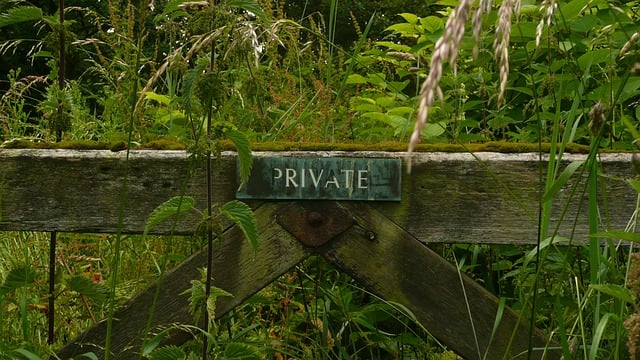
ACCO Properties Ltd v Severn & Anor [2011] EWHC 1362 (Ch)
Where a boundary is in dispute, it is important to bring certainty to the determination by proclaiming the boundary and not leaving the plot “fuzzy at the edges” (Neilson v Poole (1969) 20 P&CR 909, Megarry J).
Even where a boundary line may be determined by reference to a conveyance, other evidence may be admitted and probative in establishing a different boundary obtained by adverse possession, showing enclosure of the land in denial of the title of the true owner. Title is established by intentionally taking exclusive possession of land without the consent of, and adverse to the interests of, the true owner, and maintaining such possession continuously for the limitation period.

Zarb v Parry [2011] EWCA Civ 1306
In order to interrupt adverse possession, the paper title owners had to bring the adverse possessor’s exclusive possession to an end.

Balevents Ltd v Sartori [2011] EWHC 2437 (Ch)
An individual had been entitled to registration as possessory freeholder of land where he, and not the companies that he had managed or been a director of, had been in adverse possession of the land for over ten years.
He had not breached his fiduciary duty or duty of good faith to the companies by registration as they had occupied the land as his licensees and had acquiesced in his claim to title.

Franks v Bedward [2010] EWHC 1650 (Ch)
Where the adjudicator’s cancellation of an application to the Land Registry for registration of title to certain land claimed by adverse possession had been set aside by a judge on appeal, it was not appropriate to require the applicants to make a fresh registration application as that would deprive them of a benefit of a transitional overriding interest through no fault of their own and provide a windfall benefit to the registered owners. Instead, the court ordered the re-entry of their registration application with its original entry date in the day list maintained under the Land Registration Rules 2003 r.12, with liberty to any chargees over the registered property to apply to vary or set it aside.

Baxter v Mannion [2010] EWHC 573 (Ch)
The procedure in the Land Registration Act 2002 Sch.6 para.2 to Sch.6 para.5 was not necessarily conclusive of an applicant’s entitlement to be registered. Although an applicant would automatically be registered under Sch.6 para.4 if no counter-notice was served requiring the application to be dealt with under Sch.6 para.5, the former proprietor of the land could still apply for rectification of the register on the basis that the registration was a mistake, on the ground that the applicant did not satisfy the test of 10 years’ adverse possession.
The respondent applied to the local land registry for registration of a field in his name as a result of adverse possession pursuant to Sch 6 of the Land Registration Act 2002, which together with s 96-98 of the Act introduced a new regime relating to adverse possession of registered land. Notice of the application was given, as required, to the original owner, the applicant. The applicant failed to respond and on the evidence before the registrar, the field was registered in the name of the respondent. The applicant applied to the deputy adjudicator to rectify the registered title and to re-register him as the owner.
It was held that the registrar had power to correct a mistake he had made if any statutory condition which was a prerequisite for registration by adverse possession was shown not to have been satisfied. A registration was a mistake if it could be shown that a person had not in fact been in adverse possession of a plot of land for the requisite ten year period. That precondition referred to a factual test (ten years’ adverse possession) which had to be satisfied and upon which a squatter’s right to apply for registration was predicated.

R(on the application of Smith) v Land Registry (Peterborough Office) [2009] EWHC 328 (Admin)
A man who had lived by the side of a public highway and had applied to register title over part of it, by virtue of adverse possession, was not entitled to ownership and was committing the criminal act of obstructing a public highway under the Highways Act 1980 s.137.

Ofulue v Bossert [2009] UKHL 16
The judge found that the defendant and her father had taken factual possession in 1987 of land of which the claimants were the registered owners. Under section 17 of the Limitation Act 1980 title to land was extinguished at the expiration of the period prescribed by the Act for a person to bring an action to recover land. That period was twelve years. The proceedings before the House of Lords had originally begun in 2003. In order to answer the adverse possession claim the claimants relied upon special provisions in section 29 of the Act where the person in possession of the land acknowledged the title of the person to whom the right of action had accrued. In that event, time did not start to run until the date of the acknowledgment.

Wilson v Grainger [2009] EWHC 3145 (Ch)
There was no factual or legal reason to interfere with a decision of a deputy adjudicator to the Land Registry determining that the acquisition of title to property by adverse possession was defeated by the prior grant of a licence to use it by its true owner.

Port of London Authority v Ashmore [2009] EWHC 954 (Ch)
It was possible for the owner of a vessel moored in a particular place on a tidal river to acquire title by adverse possession to a part of the river bed where the title to the river bed had not yet been registered and the vessel rested on the bed at low tide.

Totton and Eling Town Council v Arthur Lawrence Caunter [2008] EWHC 3630 (Ch)
An adjudicator had been wrong to conclude that time, for the purposes of adverse possession, ran from the date upon which correspondence between the paper owner and possessor regarding sale of the land to the possessor ended; the possessor was entitled to remain on the land under an implied licence until the interest in the disputed land was transferred to another. That being so, the question of whether the land belonged to the person in possession by virtue of adverse possession fell to be determined under the provisions of the Land Registration Act 2002.

J Alston & Sons Ltd v BOCM Pauls Ltd [2008] EWHC 3310 (Ch)
In order to succeed in a claim for adverse possession, an intention to infringe the rights of the paper owner was unnecessary; the claimant’s recognition that he might have to go if asked to do so was not inconsistent with the requisite intention to possess.

Barton v The Church Commissioners for England [2008] EWHC 3091 (Ch)
A question of this, or a similar, kind has been the subject of authority in relation to claims to have acquired title by adverse possession of land. It is a matter of fact and degree as to when one is justified in holding that acts of possession on part of an area of land can be treated as acts of possession in relation to the whole of that land.
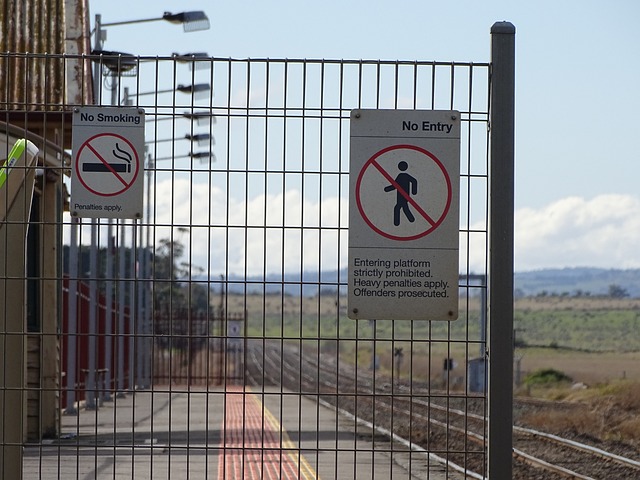
Roberts v Swangrove Estates Ltd [2008] EWCA Civ 98
There was no constitutional principle or rule of law that the Crown could not plead adverse possession where its original entry on to the land was unlawful.

Fowles v Heathrow Airport Ltd [2008] EWCA Civ 757
The landlord had opposed the tenant’s application to renew his tenancy, and the tenant also claimed title to additional land by adverse possession. The tenant asserted various business uses, some of which the landlord denied. The landlord went into liquidation, the title was disclaimed by the liquidator, and the mortgagee sold on to the defendant. At the same time in planning enforcement proceedings, the tenant had not asserted some of the uses he now claimed, and he remained in breach of planning controls. The landlord said that the failure to comply with planning obligations allowed the landlord to resist renewal.
Held: A pragmatic approach was appropriate in considering planning enforcement notices. The tenants argument that there was a technical breach by the planners was ineffective. The tenant’s activities on the site had been substantially unlawful over many years. It followed that under the 1954 Act, the court should refuse renewal. As to the claim for acquiring title by adverse possession, the evidence did not support possession over a sufficiently long period of time. The registered proprietor was entitled to possession.

National Westminster Bank Plc v Ashe [2008] EWCA Civ 55
The meaning given to “adverse possession” in JA Pye (Oxford) Ltd v Graham (2002) UKHL 30, (2003) 1 AC 419 was of general application to actions for the recovery of land, including land that was mortgaged, such that the failure of a mortgagee bank to enforce its right to possession of a property occupied by mortgagees who failed to make any mortgage payments over a period that exceeded 12 years meant that the mortgage had been extinguished by the operation of the Limitation Act 1980. The requirement of adverse possession had to be applied in accordance with the exposition of it in JA Pye (Oxford) Ltd v Graham (2002) UKHL 30, (2003) 1 AC 419, Pye applied. Adverse possession referred to the capacity of a person in possession of land and not to the nature of that person’s possession. Possession had to be given its ordinary meaning.

St Pancras & Humanist Housing Association Ltd v Leonard [2008] EWCA Civ 144
A judge had correctly held that whilst a squatter had established 12 years’ adverse possession of a garage he was estopped from contending he was entitled to possession as he had never claimed a proprietary right but had always given the impression that the garage was communal property.

Totton & Eling Town Council v Caunter [2008] EWHC 3630 (Ch)
The appellant local authority became the owner of a small strip of land when its predecessor in title conveyed ownership to it in September 1994. At that time, the predecessor had negotiated terms by which the respondents would purchase the land for £100. Despite the completion of negotiations no agreement was formalised between the respondents and the authority’s predecessor. Subsequently, the authority applied for possession of the land. In November 2007, the deputy adjudicator to HM Land Registry upheld the respondent’s claim for adverse possession after finding that any implied license to occupy the land had ceased before the authority’s predecessor transferred ownership to the authority, at the conclusion of the negotiation to purchase the land. The appeal would be allowed.

Polarpark Enterprises Inc v Allason [2007] EWHC 22 (Ch)
The claimant was rejected the adverse possession claim as “simply hopeless”. Neither of those conclusions has been challenged on this appeal. Master Moncaster rejected the third defence on the ground that, although the evidence in support of it would if true give rise to an arguable claim for a life interest or for equivalent relief by way of estoppel, the evidence was, to use his words, “simply incredible”. Accordingly it was in the Master’s view appropriate for him to decide the claim under CPR 55.8 (1) (a) rather than to give directions for case management, there being no realistic prospect of any of the defences succeeding at a trial.

Roberts v Swangrove Estates Ltd [2007] EWHC 513 (Ch)
Adverse possession claims to land comprising a riverbed and foreshores, asserted against the purchaser of paper title to an ancient lordship, were determined as a preliminary issue, with longstanding estate owners and the Crown being treated as squatters for the purpose of the hearing. Evidence of commercial dredging supported the adverse possession claims and the Crown’s intention to possess riparian lands under its ancient entitlements was not defeated by its policy of not contesting well-documented claims to such land.

Ashe v National Westminster Bank Plc [2007] EWHC 494 (Ch)
A mortgage over a property had been extinguished by the operation of the Limitation Act 1980 s.15(1) and s.17 where the right of action for possession had accrued over 12 years ago.
A claim by a mortgagee did not fall within Sch.1 para.8 of the 1980 Act. Even if such a claim did fall within that paragraph, a mortgagor was a person in whose favour time could run so far as his capacity was concerned, and in that sense was in “adverse possession” as that expression was defined in para.8(1).

Roberts v Swangrove Estates Ltd [2007] EWHC 513 (Ch)
An intention on a squatter’s part to exclusively possess the land over which he claimed adverse possession, at least until he was dispossessed by another or until the paper owner showed him good title and a real will to possess, was sufficient to show his intention to possess. At all material times the commissioners had accompanied their acts of possession and control with the intention to possess. Accordingly, their claim of adverse possession succeeded.

Wretham v Ross [2005] EWHC 1259 (Ch)
In determining a claim for adverse possession, the deputy solicitor to the Land Registry had applied an incorrect legal test by focusing on whether there was evidence of an intention to exclude the paper title owners rather than on whether the occupier had been in factual possession over the relevant period.

Trustees of Grantham Christian Fellowship v Scouts Association Trust Corp [2005] EWHC 209 (Ch)
Where the occupation of land continued to be with the consent of the owners, the occupiers were not in adverse possession and could not acquire a possessory title.

Beaulane Properties Ltd v Palmer [2005] EWHC 817 (Ch)
English law relating to adverse possession, as it stood before October 2003, was incompatible with the European Convention on Human Rights 1950 Protocol 1 Art.1. To render that law compatible with the Convention, the Land Registration Act 1925 s.75 should be interpreted as being applicable to those cases in which the trespasser established “possession” in accordance with the case law in existence at the time of its enactment.

Barrett v Tower Hamlets LBC [2005] EWCA Civ 923
The doctrine that the possessory title to land acquired by a squatting tenant should be presumed to enure for the landlord’s benefit should be extended so that on the sale of the reversion to the land comprised in the original tenancy the possessory title to the land acquired by adverse possession would be presumed to be included in the sale.

Chapman v Godinn Properties Ltd [2005] EWCA Civ 941
It concerned a claim to adverse possession of a strip of land which comprised two entrances to a private driveway and, between them, a roadside grass verge and bank. The claim was based on inter alia acts of cutting, planting, nurturing the land and sweeping leaves. It succeeded. He said: [22] It is not land in relation to which the owner, or the person in possession, could be expected to do more than tidy up and to maintain the two entrances. Keeping the land tidy involves mowing the grass and cutting back the shrubs from time to time. Maintaining the entrances no doubt involves filling in the holes and some maintenance work.

Hill v Transport for London [2005] EWHC 856 (Ch)
The Limitation Act 1980 Sch.1 para.12 provided a complete code for claims for the possession of land brought by persons claiming through the Crown, irrespective of whether the right of action had accrued originally to the Crown or to the Crown’s predecessor in title.

Soteriou v Ultrachem Ltd & Ors [2004] EWHC 983 (QB)
One of the issues was the impact of the Limitation Act to bar an owner from recovering possession of land which had been in the adverse possession of another for 12 years. The issue was whether the extension of title by 12 years’ adverse possession was a deprivation of possessions. At page 1309 Mummery L.J. held that Article 1 of the first protocol does not impinge on the relevant provisions of the Limitation Act 1980 for those provisions do not deprive a person of his possessions or interfere with his peaceful enjoyment but simply deprive a person of his right of access to the courts if he has delayed in accordance with the provisions.

Sandhu v. Farooqui [2003] EWCA Civ 531
The defendant in that case had been allowed into possession of a flat pending completion of a sale. She paid a deposit. The vendor was a solicitor. He prepared a mortgage deed, which the defendant executed. The advance was paid to the vendor/solicitor, and the defendant continued in occupation, paying the mortgage instalments, believing that completion had taken place. In fact it had not. It seems that she had been defrauded by the vendor/solicitor. Some years later the defendant discovered that completion had not taken place and that she had been defrauded. She made a claim for compensation, and recovered all her expenditure. She was also released from liability under the mortgage. Some years later the solicitor/vendor gave her notice to quit in June 2000 and claimed possession in January 2001. Her response was to assert a title to the flat by adverse possession. Whether her claim could succeed depended on whether the licence under which she had been let into occupation had been determined more than twelve years before the claim for possession.

J A Pye (Oxford) Ltd v Graham [2003] 1 AC 419
In that case the claimant brought possession proceedings against the defendants in respect of land used by the defendants for farming. The defendants successfully defended the proceedings on the basis that the claimant’s title had been extinguished by the defendants’ adverse possession. Lord Browne-Wilkinson, with whose speech the other members of the Judicial Committee agreed, said, at p. 435, that there are two elements necessary for legal possession: (1) a sufficient degree of physical custody and control (“factual possession”); and (2) an intention to exercise such custody and control on one’s own behalf and for one’s own benefit (“intention to possess”).
“[43] tells us that: (1) “factual possession”, connotes “a sufficient degree of occupation or physical control”; (2) it must be coupled with an “intention to possess” which is “an intention to exercise such custody and control on one’s own behalf and for one’s own benefit.”

Purbrick v Hackney LBC [2003] EWHC 1871 (Ch)
P appealed against a decision of the deputy solicitor to the Land Registry refusing him title, by adverse possession, to a building of which the local authority was the registered proprietor. The building had no door or roof when P cleared it and began to store equipment inside it.
Held, allowing the appeal, that P had been in possession of the building for the four-year period. Whilst P could have done more to improve the property, the question was what he actually did and whether that was enough to constitute physical possession. P had done enough to maintain possession by being in exclusive occupation of the building and by erecting a makeshift door with two locks on it, thereby excluding access by everyone else. Further, most squatters knew that their possession might be temporary and that for 12 years they were liable to be dispossessed as of right. The fact that P was aware of that did not prevent him from being in possession; otherwise, almost all adverse possession claims would fail for lack of the requisite intention to possess.

Family Housing Association v Donnellan [2002] 1 P. & C.R. 34
The law of adverse possession did not infringe the Human Rights Act 1998 Sch.1 Part II Art.1

London Borough Of Lambeth v Blackburn [2001] EWCA Civ 668
The appellant had broken into an empty council-owned flat and subsequently occupied it. After twelve years, the authority obtained a court order for possession. The court held that the appellant did not have a sufficient animus possidendi since he had not expected to live there for more than a temporary expedient. He succeeded on appeal. The tenant had removed a padlock and provided his own Yale lock. Any inspection would have revealed an intention to assert ownership against the world. That he would have negotiated with the council if they had contacted him was not enough to defeat the claim. There was nothing in the appellant’s evidence to contradict the assertion of possession.
Clarke LJ said: ‘It is not perhaps immediately obvious why the authorities have required a trespasser to establish an intention to possess as well as actual possession in order to prove the relevant adverse possession. It seems to me that the answer lies in the fact that the possession must be adverse, that is adverse to the interest of the paper owner. It can only be adverse if the possession is apparent to the owner; that is, if it is manifest to the owner that the trespasser intends to maintain possession against the whole world including the owner. That does not mean that it must in fact be known to the owner, but that it must be manifested to him so that, if he were present at the property he would be aware that the trespasser had taken possession of it and had intended to keep others out.’
‘It is thus of crucial importance that the trespasser’s acts must be unequivocal. They must make it clear to the owner, if present at the land, that he intended to exclude the owner, as Slade J put it ‘as best he can.” I would not for part think it appropriate to strain to hold that a trespasser who had established factual possession of the property for the necessary 12 years did not have the animus possidendi identified in the cases. I express that view for two reasons. The first is that the requirement that there be a sufficient manifestation of the intention provides protection for landowners, and the second is that once it is held that the trespasser has factual possession, it will very often be the case that he can establish the manifested intention.’

Markfield Investments Ltd v Evans [2000] EWCA Civ 281
The claimants were paper owners of land occupied by the defendant. The claimant said the acquiescence had been interrupted by an abortive court action by the claimant’s predecessor in title.
Held: With regard to any particular action, the relevant time, and the only relevant time, for consideration of adverse possession is that which has expired before such action is brought. A letter and separate action could not found a claim. Appeal dismissed.

Markfield Investments Ltd v Evans [2000] EWCA Civ 281
The claimants were paper owners of land occupied by the defendant. The claimant said the acquiescence had been interrupted by an abortive court action by the claimant’s predecessor in title.
Held: With regard to any particular action, the relevant time, and the only relevant time, for consideration of adverse possession is that which has expired before such action is brought. A letter and separate action could not found a claim. Appeal dismissed.

Ellis v Lambeth LBC (2000) 32 H.L.R. 596
A breach of the Community Charges (Administration and Enforcement) Regulations 1989 Reg.4(3) in not submitting a registration form did not interrupt 12 years’ occupation. LLBC had been aware of the squat and it was LLBC’s failure to complete its registration duties which gave rise to the detriment. The inability to collect community charge was not a material detriment upon which LLBC was entitled to rely.

Aldridge Estates Investments Co Ltd v McCarthy [1996] E.G. 167 (C.S.)
Held, that the presence of squatters and the fact that property was unoccupied were material circumstances which had to be disclosed to the insurers of the property. If not, the insurers would be able to avoid claims made in connection with the policy. It made no difference if the squatters had a licence to occupy the property, as their presence increased the risk of damage and of unlawful connection to utility services.

Lodge (t/a JD Lodge) v Wakefield Metropolitan Council [1995] EWCA Civ 41
The plaintiff had formerly been a tenant of the defendant under an informal tenancy. No rent had been paid since 1974. He claimed to have acquired the land by adverse possession. He gave evidence at trial that if he had been asked to pay rent at any time before the twelve years were completed, he would have done so.
Held: A tenant in possession was during the subsistence of the tenancy entitled to exclude from the land the world at large, including the landlord. The squatter necessarily had the requisite mental intention of possessing the property for the purpose of adverse possession.

Colchester Borough Council v Smith [1991] Ch 448
The Council claimed possession of land in respect of which T asserted a title by adverse possession. By clause 4 of an agreement in 1983 T had agreed that he had had no title to any part of the land except for the tenancy under the agreement. Ferris J held that T was estopped by contract and by convention from asserting to the contrary and from relying on the provisions of the Limitation Act 1939 as a defence.
“A convention of the parties, which binds them to adhere to an assumed state of facts, may amount to an express contract, in which case each party contracts with the other to be estopped. Burroughs Adding Machine Ltd v Aspinall (1925) 41 TLR 276 C.A. is an example ….”

Hyde v Pearce [1982] 1 W.L.R. 560
There can be no adverse possession within the Limitation Act 1939 s.10 when the person seeking to rely on that possession occupies the property pursuant to a contract of sale.
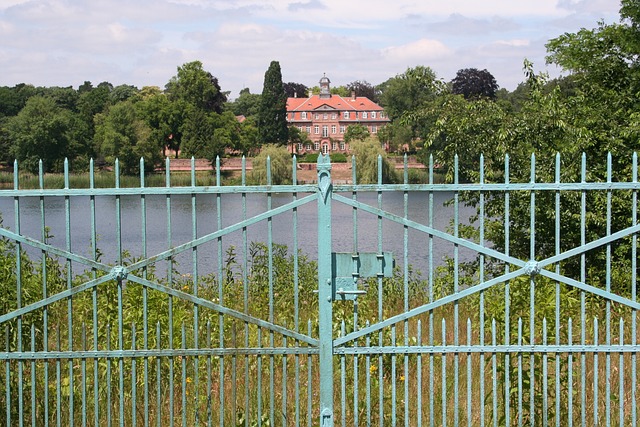
Wallis’s Cayton Bay Holiday Camp Ltd v Shell-Mex and BP Ltd [1975] Q.B. 94
Held, when the true owner intended to use land for a particular purpose, but had no immediate use for it meanwhile, and so left it unoccupied, the mere fact that another person entered on it and used it for some temporary seasonal purpose even for more than twelve years, did not entitle him to assert that he used the land adversely as a trespasser, since his user was to be ascribed to the licence or permission of the true owner.

Palfrey v Palfrey (1973) 229 E.G. 1593
L had lived in a cottage since 1915, paying rent until 1928 when her father-in-law X, the freehold owner told her that she was to have the cottage. In 1930 X secretly conveyed the cottage to L’s son, C.

Fairweather v St Marylebone Property Co Ltd [1963] A.C. 510
Where a squatter has obtained a possessory title against the tenant of land, the landlord can obtain an immediate right to possession by obtaining a surrender from the tenant. In such a case, the landlord has an estate or interest in reversion or remainder, and the tenant’s right and title is not extinguished as against the landlord, but only as against the squatter, and on the surrender, his term is determined, not extinguished, so that the landlord’s right to possession accrues at that moment. A squatter barred by adverse possession the right of the tenant under a 99-year lease of land and afterwards the tenant surrendered the rest of the term to the landlord. The landlord then sued the squatter for possession. Held, that he was entitled to possession at once.

Seddon v Smith (1877) 36 LT 168
“Enclosure is the strongest possible evidence of adverse possession.”

